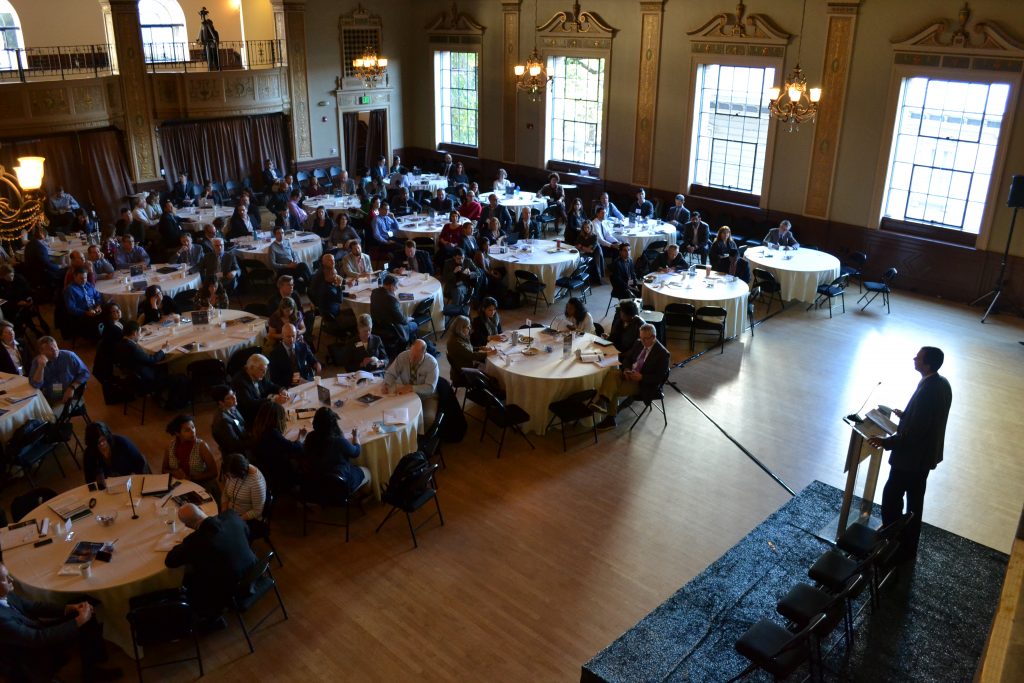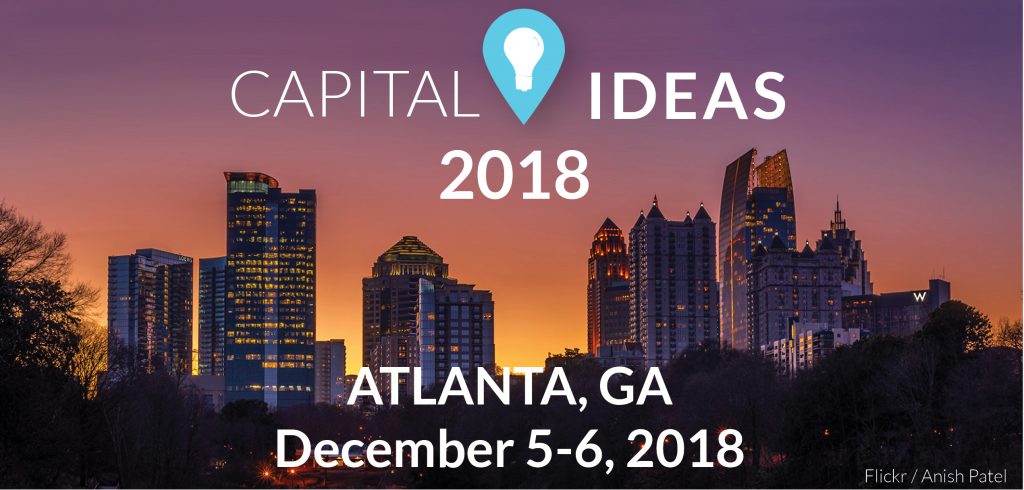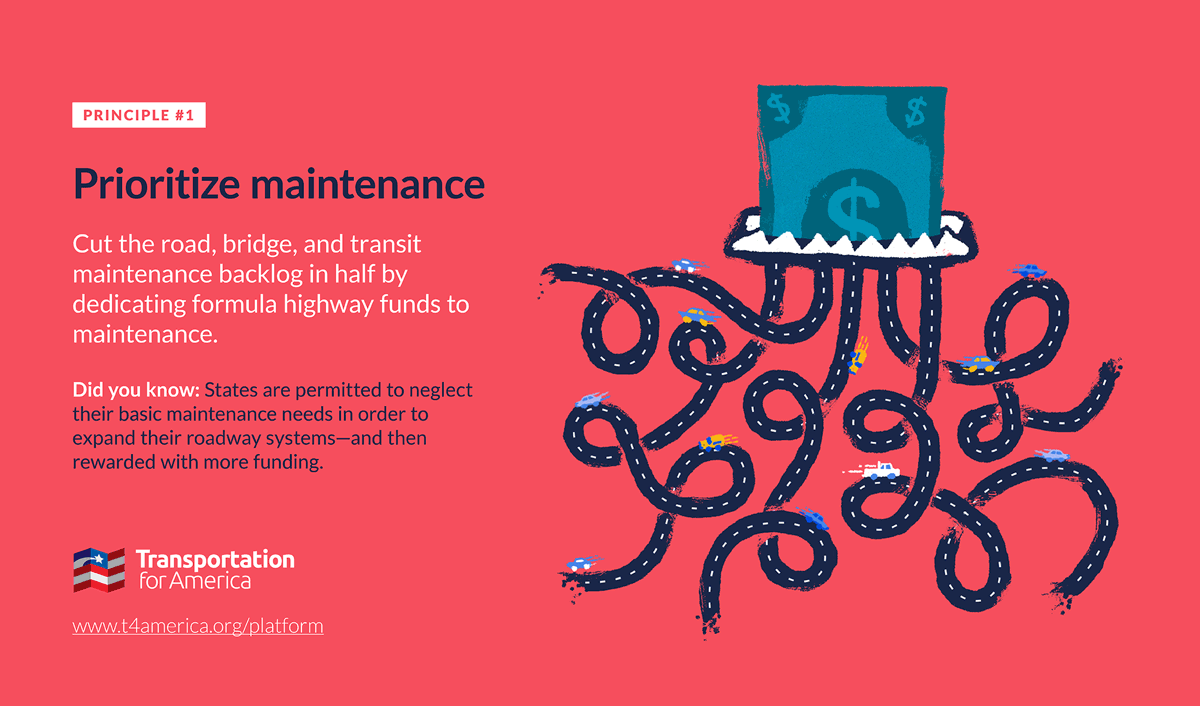Registration is now open for Capital Ideas 2018
Registration is now open for Transportation for America’s state policy conference, where we’ll be defining the state’s role in transportation during a time of disruption and uncertainty. Learn more and register today at discounted early bird rates to join us this December in Atlanta, GA.


Kevin Thompson, Director
We are in the midst of a transformational age for transportation, but the benefits are not being evenly or carefully distributed. Today, thanks to new technologies, we have more choices than we ever before, yet people living in metropolitan areas remain crippled by gridlock while those in exurbs and rural communities are increasingly isolated. With more options, transportation has gotten more complicated, with more people—whether on bikes, on foot, in ridesourcing vehicles, or on transit—competing for limited street space. And despite all the innovation, transportation is still an expensive burden for too many people.
All of this change is occurring as employers are relocating to downtown areas but escalating housing prices are pushing employees further away from central cities. And the quality of the roads and transit systems we rely on are in jeopardy as the backlog of neglected maintenance and repair continues to grow.
But for the first time in a long time, more people are beginning to recognize that transportation—and transit in particular—is really a tool that helps people access opportunity, drives economic development, improves our health, environment, and public safety, and builds the civic and social capital that binds communities together. Mobility is catalytic and transformational.
If any of this has you thinking, then you might be interested in attending Capital Ideas 2018 in Atlanta on December 5th and 6th. Early bird registration for the conference is now open! Save $100 by registering before July 2nd.
Register now
This year’s conference theme is “defining the state role in transportation during a time of disruption and uncertainty.” Just like the two previous conferences in Sacramento and Denver, this year’s conference will bring together state and local elected officials, policymakers, advocates, chambers of commerce, foundations, universities, think tanks and industry under one roof. With so many experts together we can tackle the real issues that constrain our mobility, limit our economic growth, and prevent our communities from becoming the vibrant, livable, connected places we all desire.
Register today for Capital Ideas 2018, and save one-third off regular admission with the early bird special rate.
Capital Ideas has become a forum for problem solving. Following our inaugural conference in 2014, participants crafted a strategy that doubled the number of states with approved plans to increase funding for transportation. In fact today, nearly thirty states and some 77 local communities have raised more than $170 billion in new revenues for future transportation investments. Since our second conference in 2016, dozens of metropolitan planning organizations (MPOs) and state departments of transportation (DOTs) have been introduced to new approaches to better plan, design, evaluate, and select transportation projects to advance a vision of livable, connected communities.
In 2018, Capital Ideas will chart a dynamic agenda and attempt to determine state-level solutions for automated vehicles, regional approaches to funding, placemaking, public transit network redesigns, capturing the value of better transit service, ballot access, maximizing capacity for a shared mobility future and much more.
We want you to be part of the discussion; register today for Capital Ideas!
Register

Join Capital Ideas as a sponsor
Take advantage of a variety of the sponsorship opportunities for Capital Ideas. Whether your goal is to connect with key decision-makers, increase brand awareness or promote your initiatives, as a sponsor:
- You fully participate in the conference and help moderate discussions.
- You are in the right place at the right time.
- You are working with policymakers and influencers that are shaping and moving an agenda.
- You are a change agent. You are part of the solution and a force for good.
- Your reach is wider and more substantive.
- Participants may see you with a new perspective.
Many of our sponsorship opportunities come with additional exclusive benefits and recognition opportunities. Learn more here.
Submit a session proposal
Our team is also seeking proposals for conference roundtable sessions and general plenary sessions that pertain to the emerging paradigm shift characterizing our transportation landscape today—disruption and uncertainty.
All plenary and session proposals are due on June 15, 2018 at 8 p.m. EDT. We invite you to submit your proposal today!




















1 Comment